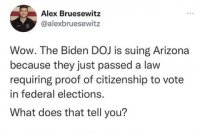- Joined
- Feb 2, 2005
- Messages
- 95,082
- Likes
- 67,588
Was the Paycheck Protection Program Effective?
“But it was poorly targeted, as almost three-quarters of its benefits went to unintended recipients, including business owners, creditors and suppliers, rather than to workers. Due to differences in the typical incomes of those varied constituencies, it also ended up being quite regressive compared with other major COVID-19 relief programs, as it benefited high-income households much more.”



